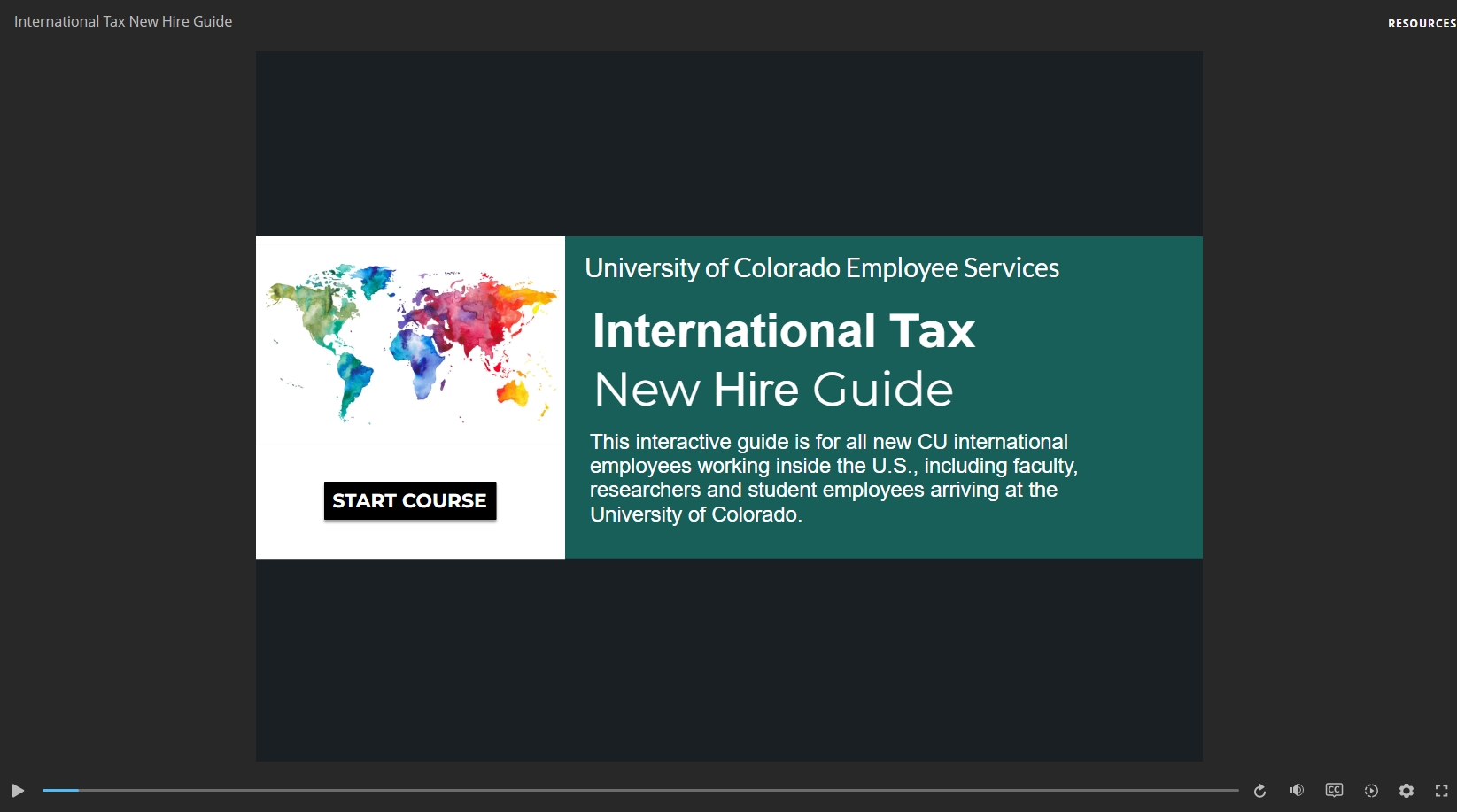Welcome to the University of Colorado! We know you have a lot to get familiar with in your new position. This page will walk you through the important steps to take as well as the resources available to you through your campus and the CU System Administration.
Step 1: Watch the New Hire Orientation Course
This course is designed by the International Tax Office to highlight important payroll tasks you need to complete as a new international employee of CU.
Step 2: Submit information through Sprintax Calculus
Sprintax Calculus is a web-based platform that gathers the immigration details necessary to determine your U.S. tax residency status and tax treaty eligibility. It also makes important year-end tax forms available electronically with your consent, so you won’t have to wait for forms in the mail each tax filing season. With Calculus, international employees can expect accurate taxation as soon as their profile is completed and approved by the International Tax Office.
New employees will receive an email notification from CUIntlTax-noreply @ Sprintax.com inviting them to complete their Sprintax profile within approximately 14 days of their start date.
After answering questions about your current immigration status and history of presence in the U.S., and uploading your immigration related documents through a secure document exchange, Sprintax Calculus will prepare the relevant tax forms for your e-signature.
Step 3: Get familiar with key documents
The university will send you key documents throughout the year, which you will use to file your U.S. taxes. Additionally, you’ll need to know which forms to file with the U.S. Internal Revenue Service (IRS) and deadlines to file them.
The documents you receive and the documents you file will depend on your tax residency status. Many of you are likely new to the U.S. and considered nonresident alien taxpayers. However, some of you may be new to CU but not to the U.S. and may be considered resident alien taxpayers. Completing your Calculus profile (outlined in Step 2) will generate in a Sprintax Tax Summary that includes your U.S. tax residency status, determined based on the details you provided.
You can find information specific to your U.S. tax residency status on the Nonresident Alien Basics webpage or the Resident Aliens Basics webpage.
In addition, you can find an overview of the documents you can expect to receive, the forms you will need to file and the deadlines to file them on the Tax Documents and Deadlines for Nonresident Aliens webpage or the Tax Documents and Deadlines for Resident Aliens page.
Step 4: Organize and maintain your records
Tax filing is complicated and can be stressful — even for U.S. citizens. As an international worker, organizing your important documents and keeping records throughout the year is crucial. It will help greatly when you need to file taxes or update your residency status.
Make sure to keep digital or paper copies of:
- All the key documents generated in Sprintax Calculus (outlined in Step 2)
- All the documents you received from the university and forms you filed with the IRS (outlined in Step 3), and
- Any applications or declarations you filled out as part of your entry into the United States.
Additionally, it’s helpful to keep a document or spreadsheet detailing every trip you make (and have made) into or out of the United States with dates and immigration status of the entry. This will allow you provide a detailed account of your presence within the United States without having to rely on memory alone or scrambling to find every ticket and boarding pass from the previous year. Downloading your travel history from the Department of Homeland Security's I-94 website can help you get started.
Step 5: Reach out to the International Tax Office for help
The International Tax office is always here to provide information, look for solutions to problems and answer unique questions. Don’t hesitate to contact us anytime you encounter a problem or have a question at intltax@cu.edu.





